fred phelps

For most of recorded history, Isis was an Egyptian goddess, a benevolent type who cared for widows and orphans, cured the sick and even brought the dead back to life.
This year, the world met the other ISIS.
The rise of the so-called Islamic State, variously known as ISIS or ISIL, dominated headlines in 2014 as a self-proclaimed caliphate sowed death and destruction across Iraq and Syria. For some, the group confirmed their worst fears about Muslim extremists, bent on killing religious minorities and subjugating women in a quest for domination that included leveling villages and beheading hostages.
The terror wrought by the Islamic State reflected a sense of turbulence that upended international news in 2014. But it was not the only source of unrest. The Ebola virus in west Africa put the world on edge, and a bloody war between Israelis and Palestinians in Gaza, kidnapped schoolgirls in Nigeria and the slaughter of more than 100 children at a military school in Pakistan added to the mix.
At home, America wrestled with police brutality as grand juries declined to prosecute officers in the deaths of unarmed black men in Ferguson, Mo., and New York City. From botched prison executions to a stream of desperate migrant children flooding America’s southern border, things felt troubled, disorienting, always on the verge of breaking apart.
Religion played a large role in those stories, and in other major headlines from 2014:

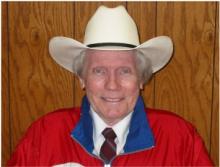
As anti-gay preacher Fred Phelps passes on to whatever is his reward, we need to ask how he managed to inspire a following.
His was hardly an exemplary life. One neighbor remembers seeing his children in Topeka, Kan., in the 1970s and noticing they were bald. He was told Phelps sent his kids out to sell some product, and if they didn’t make their quota, he shaved their heads as punishment.
Many tell how Phelps and his followers at Westboro Baptist Church sent vicious faxes when gay men were dying of AIDS, picketed military funerals with “God hates you” signs, and blamed terrorist attacks and fallen soldiers on America’s growing tolerance of homosexuality.
He was consistent, that’s for sure. Brutish and bullying from home to pulpit to public forum. Filled with anger and hate. And totally unrestrained in how he expressed his rage.
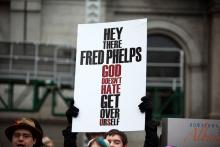
God is not like me or Fred Phelps. And I am thankful for that.
Fred Phelps, the founder of the Westboro Baptist Church, died last week. Phelps and his church are infamously known for picketing the funerals of lesbian and gay people and the funerals of American soldiers with signs saying “God Hates Fags” and “Thank God for 9/11.”
There is no doubt that Fred Phelps and Westboro Baptist Church have spread a lot of hate and caused a lot of pain over the last few decades. From funerals to Lady Gaga concerts, the church’s website boasts that Westboro members have picketed more than 50,000 events since Phelps founded it in 1955.
Why was Phelps filled with so much hatred? He explained his animosity in 2006 when he analyzed the tragedy of 9/11:
We told you, right after it happened five years ago that the deadly events of 9/11 were direct outpourings of divine retribution, the immediate visitation of God’s wrath and vengeance and punishment for America’s horrendous sodomite sins, that worse and more of it were on the way … God is no longer with America, but is now America’s enemy. God himself is now American’s terrorist.
If you didn’t know it before, you know it now: theology matters. What we say about God matters because, like all of us, Phelps was a reflection of the god he worshiped.

I suppose it is an indication of how steeped in popular culture I am that the first thing that came to mind when I heard of the death of Westboro Baptist Church founder and former leader Fred Phelps was the song, "Freddie's Dead," by Curtis Mayfield. But although it is a relatively superficial and tangential connection to make, I still prefer that to much of the venom and grave dancing have witnessed since the announcement.
Phelps and his predominantly family-based ministry is best known for their over-the-top protests of everything from gay pride festivals to military funerals, as well as their deeply divisive and inflammatory signs. But given the fact that only a relative handful of people attend Westboro Baptist, and given the extreme nature of their mission and message, Phelps's ability to galvanize and garner the attention of the mainstream media was nothing short of remarkable.
It is less well known that Fred Phelps was kicked out of his own congregation in recent years as the beast of intolerance he had given birth to within his congregation turned even on him. Apparently, even Phelps himself had lost the necessary edge of judgment, anger, and intolerance his followers deemed necessary to champion their cause going forward.

Fred Phelps, famous for picketing funerals with vicious anti-gay messages, died this week. His estranged son, Nate, had posted on Facebook that the 84-year-old Phelps had been excommunicated from his own Westboro Baptist church and was in hospice end-of-life care.
Nate and other Phelps children and grandchildren abandoned this church of hate over the years. In the end, Fred Phelps died without the comfort of church or family.
When I heard Fred Phelps was on his deathbed, I grieved for Nate. His whole life was spent either learning the lessons of hatred from his father — or recovering from them. I grieved that Nate Phelps was banned by his family from saying a final goodbye to his father which could have brought healing and closure for Nate in his battle against hate.

Nathan Phelps, the estranged atheist son of anti-gay Kansas pastor Fred Phelps who died Wednesday, is asking people to look beyond his father’s legacy of hate.
The younger Phelps, who is 55 and goes by Nate, is one of four of Fred Phelps’ 13 children who renounced their father’s activities, which included picketing the funerals of veterans, AIDS victims, and celebrities and left his Westboro Baptist Church in Topeka, Kan. The church of approximately 40 members of the Phelps clan is best known for its public protests and colorful signs declaring, “God hates fags.”
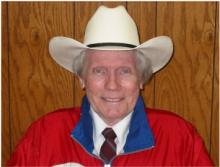
Fred Phelps died early Thursday morning. Phelps was best known for his deeply rooted hatred and promulgating the tasteless slogan “God Hates Fags.” His little group of mostly extended family members that comprised the 59-year-old Westboro Baptist Church in Topeka, Kansas, carried their signs with such ugly and painful statements all over the country. Phelps’ small cult got the most attention for their protests of military and other high-profile funerals, claiming that the slain soldiers deserved to die as a consequence of God’s judgment against America’s tolerance of gay and lesbian people. Such shameful and angry messages, understandably, caused great pain among the mourners and family members grieving their loved ones.

A “fringe hatemonger” — that’s what I called Fred Phelps in a letter to the editor of The Washington Times in 1999. In response he announced in a news release that he was coming to Colorado Springs to protest the “… false prophet James Dobson and his fag-infested Focus on the Family scam.”
It also challenged my immature understanding of theology. “What if Phelps is right?” I worried. I buried these thoughts for years — though truth be told, they’d surface at nearly every mention of his name.
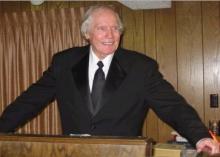
Editor's Note: Fred Phelps, founder of Westboro Baptist Church — best known for anti-gay demonstrations that include picketing soldiers' funerals — is reportedly near death. The following is offered as a prayer.
Good and gracious God,
We lift up a prayer
for the misguided –
for those who hate
and belittle
and abuse
in your name.
For those
who wish to see
the hate go on,
the anger be fed,
the world continue
on its unsustainable path
of division and judgement.
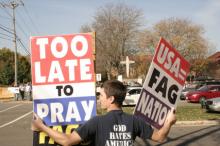
WASHINGTON — In response to five “We the People” petitions, the White House condemned the actions of the Westboro Baptist Church but said it is powerless to list the Kansas church as a hate group and remove its tax-exempt status.
The White House response on Tuesday said the federal government does not maintain a list of hate groups, instead leaving that task to private organizations, such as the Anti-Defamation League and Southern Poverty Law Center. Both have called Westboro a hate group.
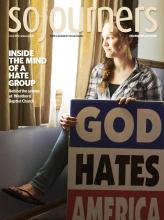
Picketing the funerals of soldiers. Protesting against female pastors. Condemning gays and lesbians to hell. You name it, the members of Westboro Baptist Church have done it.
As the June 2012 cover story of Sojourners magazine illustrates, Westboro has become “The Face of Hate.” But thanks be to God, that is not the end of the story.
In a shocking turn of events, Megan Phelps-Roper — granddaughter of Westboro Baptist founder Fred Phelps — recently left the flock along with her younger sister Grace Roper. Abandoning family, friends, and everything they have ever known, the two sisters have publicly denounced their connection with Westboro and the gospel of hate that consumed their lives for so long.
Topeka’s Westboro Baptist Church takes in-your-face to a whole new level. The church is nothing if not an equal opportunity offender, from its burning of both a Quran and an American flag on 9/11 to its signs proclaiming God’s hatred for ... well, pretty much everyone. While Westboro, established by a lawyer named Fred Phelps in 1955, claims to be a Primitive Baptist Church, that denomination denounces the actions of the church as “deplorable.” The church boasts of conducting 47,770 demonstrations since 1991 proclaiming its gospel of hate—while taunting on its website that the number zero represents the “nanoseconds of sleep that WBC members lose over your opinions and feeeeellllliiiiiings.”
From Rebecca Barrett-Fox’s first visit to the church in 2004 until defending her dissertation “Pray Not for This People for Their Good” in 2010, the scholar became intimately acquainted with the people of Westboro in a way that few outsiders have. Barrett-Fox, now a professor at two Mennonite colleges in Kansas (Hesston and Bethel) and book review editor of The Journal of Hate Studies, conducted intensive ethnographic research on the church, joining members at Sunday services, pickets at memorials for gay and lesbian people, and outside the Supreme Court when it ruled in favor of the church’s right to demonstrate at military funerals.
Freelance editor and writer Joanie Eppinga (eagleeyeediting.com), who is the former editor and current assistant editor of The Journal of Hate Studies, met Barrett-Fox through Gonzaga University’s Institute for Hate Studies and interviewed her last April.
—The Editors
Joanie Eppinga: How did you become involved with Westboro Baptist Church?
Rebecca Barrett-Fox: I had grown up with fundamentalist Christianity, with a particular emphasis on the scary parts; I was born in the decade of Hal Lindsey’s The Late Great Planet Earth. My mom did a wonderful thing for us, which was to send us to every religious service that was available, in part I think because she wanted us out of the house. When I came to the University of Kansas, a group of friends and I decided to go to every religious service we could find, and that included Westboro Baptist.
What made you decide to move forward with your study?
In some sense, I felt called to it. So I spent a lot of time grounding myself in Calvinism. It was a long, dark winter! I wanted to historicize Westboro teachings, because I sensed early on that there was a lineage here in American intellectual and theological history. Then, in 2010, I studied them intensely through their Supreme Court trial, and traveled to the Supreme Court, though not with the church, to witness that process.
The evangelical world expands to a far-off horizon and the topographical valleys and peaks cover landscapes that are both long and wide. Many in the media seem to have little knowledge of how large of a space the evangelical map covers. So, with this said, I welcomed Ross Douthat's thoughts in Monday's New York Times. His column, "American Theocracy Revisited," places good markers on the fears that Rick Perry and Michelle Bachmann's presidential runs are nothing more than an attempt at theocracy.
In much of the coverage of these two campaigns, the evangelical world gets flatten, stereotyped, and portrayed as only coming from one narrow point. Whether or not you agree with this view, the fact remains that any group that includes Miroslav Wolf, Jim Wallis, RC Sproul, Rick Warren, Joyce Meyers, Philip Yancy, Chuck Missler, Rob Bell, Albert Mohler Jr, TD Jakes, Amy Grant, Tony Campolo, Lucy Swindoll, Debrah Joy Winans, and so many more hues and colors of evangelicalism should not be placed in one bag and shaken into one lumpy mess, while saying that any one of their diverse views politically are the one true color. I know many will view this list and say who should or should not belong, and then justify their choices. A coherent political agenda could not be drawn from such a list of people. But following Jesus and making Jesus known in the world is at the core of each of these people's identity. Many on the list may disagree as to the best way to provide for the widows and orphans, but all would agree that we must care for them.